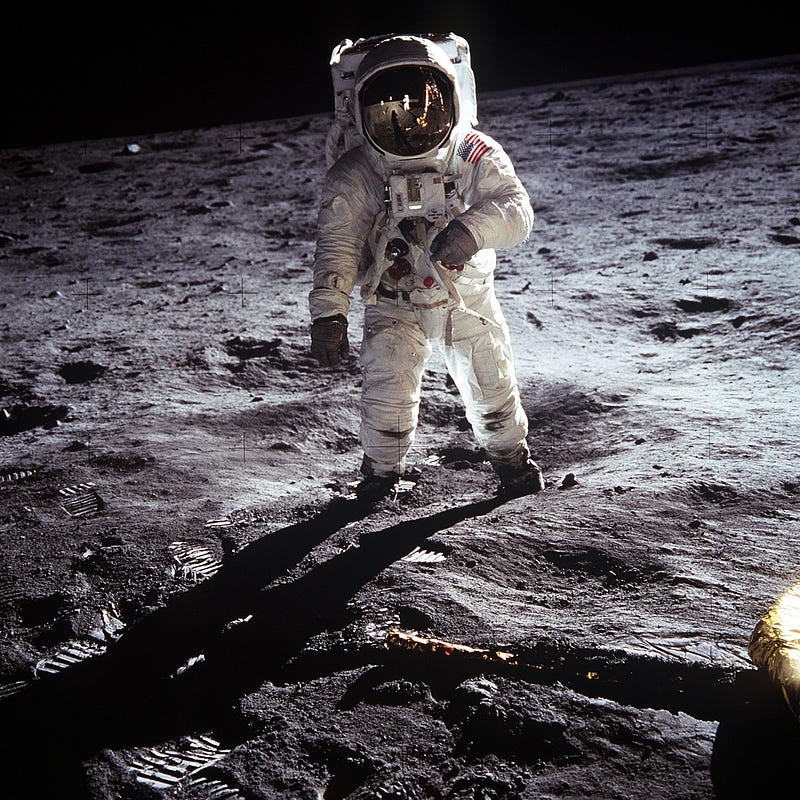Understanding Astronaut Health: The Impact of Space Travel
Written on
Chapter 1: The Astronaut Experience
What effects does space travel have on astronauts' bodies? A notable case is that of Scott Kelly, who has spent a staggering 340 days in space during his One Year Mission aboard the International Space Station (ISS) alongside Russian cosmonaut Michail Kornienko in 2016. In total, Kelly has accrued 520 days in various missions. Interestingly, he has a twin brother, Mark Kelly, also an astronaut, but with a significantly shorter record of just 54 days in space. This unique situation allowed scientists to analyze the physiological changes Scott experienced during his extended stay in orbit, using Mark as a control subject who remained on Earth.
The NASA Twin Study has confirmed several long-suspected consequences of prolonged space exposure: astronauts experience immune system changes, alterations in eye shape, and substantial reductions in both muscle and skeletal mass. Moreover, Kelly's gut microbiome underwent significant shifts, cognitive functions declined, and genetic alterations were observed, demonstrating the profound impact of space travel on human biology.
“The Twin Study provided initial insights into the molecular responses of the human body to spaceflight,” explained Christopher Mason, an associate professor at Weill Cornell Medicine. “However, we needed more extensive context and additional studies to fully understand the frequency and degree of these changes across different astronauts and mission lengths.”
Through advanced analytical techniques like genetic sequencing, researchers revisited earlier data and compared findings from 56 astronauts across 19 recently published studies, with ten more currently under review. This compilation represents the most comprehensive evaluation of the effects of space travel to date.
Section 1.1: Key Findings from Space Missions
Six primary changes were observed in astronauts during their time in space:
- Oxidative stress, characterized by an accumulation of free radicals in cells.
- DNA damage.
- Disruptions in the gut microbiome.
- Changes in gene regulation, impacting which genes are expressed or silenced.
- Mitochondrial dysfunctions, crucial for cellular respiration and energy production.
- Alterations in telomere length, which protect chromosomes and shorten over time.
Among these findings, mitochondrial dysfunctions stood out to experts, as these organelles are vital for generating the chemical energy essential for life. Research indicated that about a dozen astronauts experienced irregular mitochondrial activity, correlating with various issues during and after their missions, such as immune deficiencies and circadian rhythm disruptions.
Subsection 1.1.1: The Telomere Effect

Interestingly, researchers discovered that Kelly's telomeres elongated while in space but contracted back to normal or below-average lengths shortly after his return to Earth. This phenomenon, likened to an accordion effect, remains poorly understood, although it has been linked to oxidative stress. Similar changes were noted in ten other astronauts, irrespective of their mission durations.
Section 1.2: Broader Implications
Researchers also noted a reduction in blood cell mutations for Kelly and a general decrease in aging biomarkers among astronauts. Furthermore, levels of microRNA—essential for gene expression and cardiovascular responses to radiation and microgravity—rose significantly.
Jeffrey Sutton, director of the Baylor College of Medicine’s Center for Space Medicine, remarked, “We are entering a new era of space biomedical research, where precision medicine is applied to better understand how we adapt to space.”
Chapter 2: Future of Space Exploration
As we consider missions to Mars, the feasibility of extended stays in space is still under debate. Kelly suggests that while a one-year mission may be achievable, anything beyond that presents significant challenges. He envisions the need for structures that could generate artificial gravity to aid recovery.
Pharmacological studies are underway to identify potential treatments to mitigate the effects of radiation and microgravity. Some existing remedies for extreme sports enthusiasts, who experience oxidative stress similar to astronauts, could also be adapted for space travel. However, more data is crucial, especially from upcoming missions.
Susan Bailey, a genetics expert at Colorado State University and a senior author on several NASA studies, emphasized, “The more we understand the health impacts of long-duration space flights, the better we can support astronauts’ performance and well-being during and after missions—knowledge that will also benefit life on Earth.”
Thank you for reading.
See you next time!
Wero